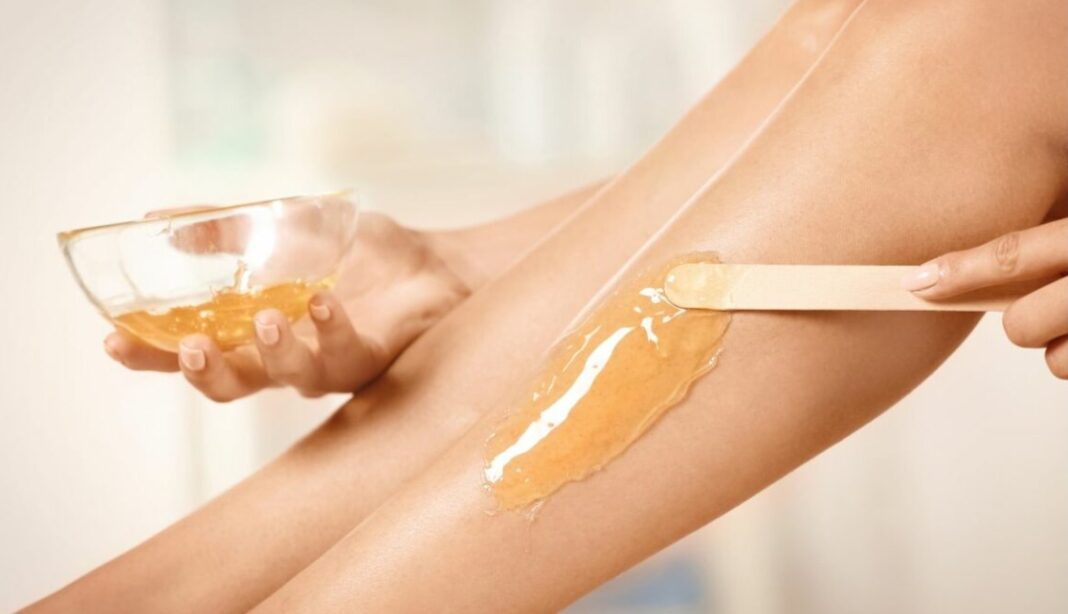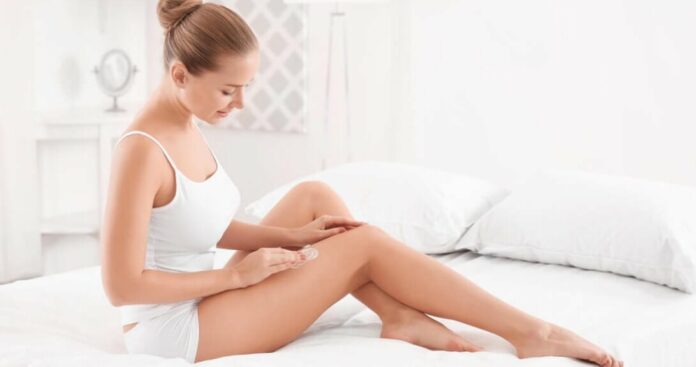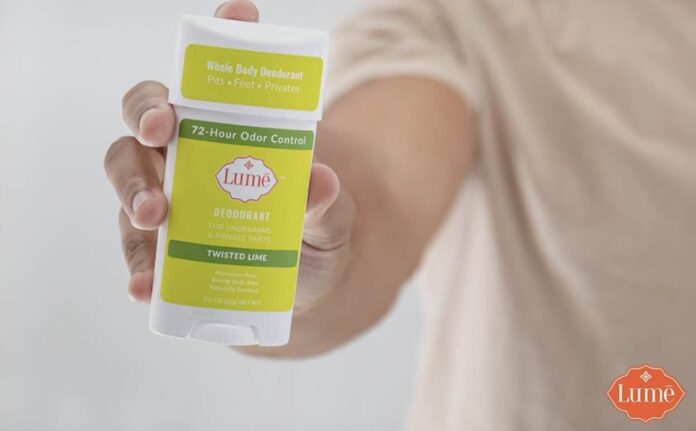We all love removing our hair with wax as it is cheap and effective, and the new hair comes thinner. While using wax, our focus is always on heating it at the right temperature and applying it the right way. But, knowing how to get wax off the skin is equally important.
Because, if you cannot take wax off the skin properly or a residue is left behind, it can cause redness, irritation, and discomfort. So, this article focuses on what gets the wax off the skin completely. Knowing some DIY products can help you remove wax effectively and save yourself from any skin damage.
To know the side effects of waxing you might suffer due to your wrong technique, click 9 Face Side Effects of Waxing.
Table of Contents:
- Part 1: Precautions and Preparation
- Part 2: 8 Methods for Removing Wax From the Skin
- Part 3: Post Removal Care
Part 1: Precautions and Preparation Let the Wax Cool Down
Let the Wax Cool Down
Soft waxes and hard waxes are required to be heated at a certain temperature to attain the gel-like consistency necessary for the smooth application of wax. However, after attaining the consistency, you cannot immediately put them on a spatula and apply on the skin.
You need to let the wax cool down for at least 10-20 minutes so that it does not burn your skin. Also, keep checking the temperature because if it is too cold, it will harden making it difficult for you to apply the wax.
Perform Patch Test
There are times when waxes contain ingredients that can be allergic to your skin or too harsh to burn your skin. You cannot take risks, especially with the sensitive parts.
So, before using the wax, do a patch test and apply the wax on a small area of your leg or arm. Then, check for any reactions, redness, or irritation after removing it. Performing the test will save you from any adverse reactions.
Keep All Necessary Supplies With You
You want the waxing hair removal to be quick and as easy as possible, right? For this, keep all the necessary waxing supplies with you when you sit to remove hair from your body.
Wax, wax warmer, and applicators are necessary. If you are using a hard wax, you will also require waxing strips.
In addition to this, you should have a gentle moisturizer with you to prevent your skin from drying and soothe the skin. If you have sensitive skin, you can keep an antibiotic cream with you to apply it as soon as you are done waxing. It will minimize the risk of infection.
Part 2: 8 Methods for Removing Wax From the Skin
When you are removing wax from the skin, some residues are always left behind. Therefore, this section provides some details on how to get hair removal wax off the skin.
Method 1: Peeling or Rolling
 How to take wax off skin? The most traditional method of removing the wax is peeling or rolling. When you apply hard wax on your skin, it hardens over time and you can just peel it off with your bare hands.
How to take wax off skin? The most traditional method of removing the wax is peeling or rolling. When you apply hard wax on your skin, it hardens over time and you can just peel it off with your bare hands.
There are also roll-on waxes in which you apply the wax and then use wax strips to remove the wax from your skin.
Method 2: Use Oil
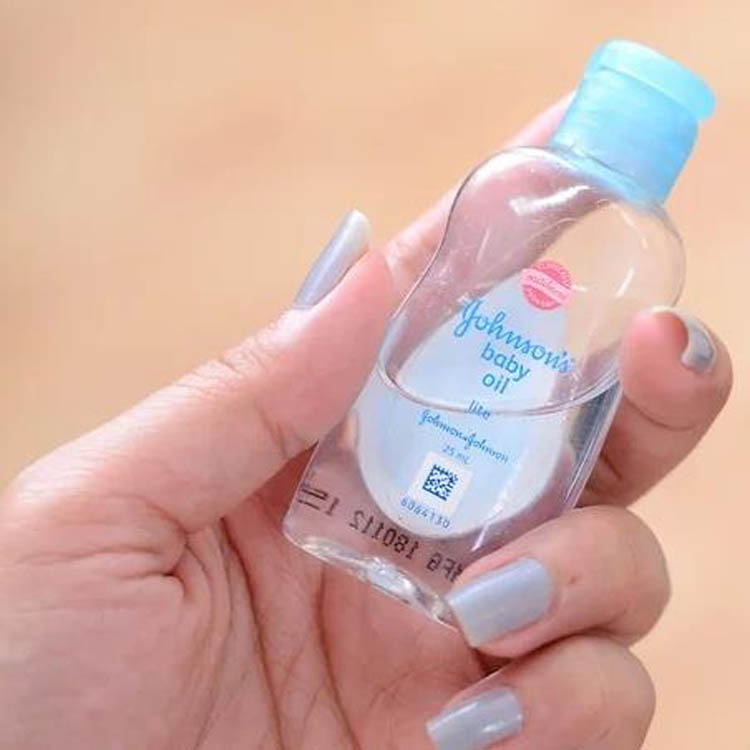 Do you prefer using hard wax as it is gentle for areas like the face or bikini areas but cannot take it off easily? Wondering how to get hard wax off the skin? Remove the wax in the same way as written on the wax package.
Do you prefer using hard wax as it is gentle for areas like the face or bikini areas but cannot take it off easily? Wondering how to get hard wax off the skin? Remove the wax in the same way as written on the wax package.
Then for the removal of wax, you can take either baby oil, olive oil, or even coconut oil. Apply the oil on the wax residues using a cotton pad and then let it sit for some time. Once the residues soften, you can remove them using a clean damp cloth or cotton pad.
Method 3: Ice or Cold Compress
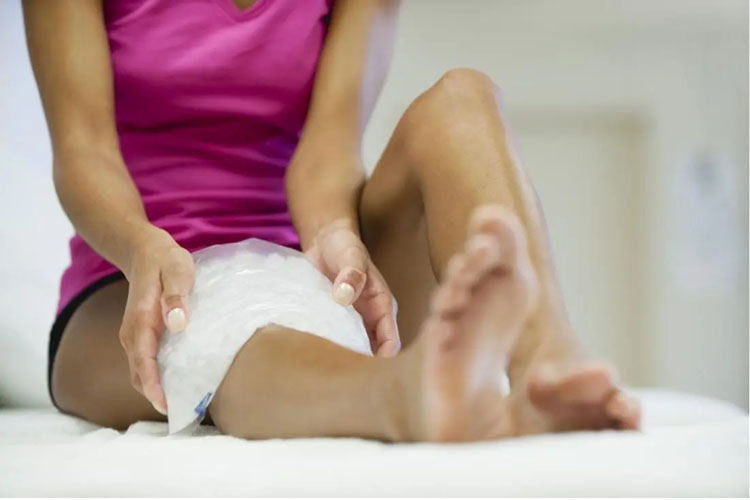 Another answer to your “How do you remove wax from skin?” is the use of ice packs. These are easily available at your home and allow quick wax removal. All you need to do is put the ice pack on the area with wax and keep it there for a few minutes. If it is just a residue, you only need a few seconds.
Another answer to your “How do you remove wax from skin?” is the use of ice packs. These are easily available at your home and allow quick wax removal. All you need to do is put the ice pack on the area with wax and keep it there for a few minutes. If it is just a residue, you only need a few seconds.
Then remove the hardened wax with the help of a damp cloth.
Method 4: Warm Water Soak
 We have discussed hard wax removal but how to get soft wax off the skin? The most efficient way for soft wax removal is using warm water. For using warm water soak, take a cloth and soak this in warm water. Then, apply it to the wax residue for 40-60 seconds and you are good to remove the residue from your skin.
We have discussed hard wax removal but how to get soft wax off the skin? The most efficient way for soft wax removal is using warm water. For using warm water soak, take a cloth and soak this in warm water. Then, apply it to the wax residue for 40-60 seconds and you are good to remove the residue from your skin.
Method 5: Alcohol
 A cotton pad soaked in alcohol can remove the wax residue from your skin. All you need to do is take this soaked cotton pad and rub it on the area with wax remains in a circular motion. The residue will dissolve eventually.
A cotton pad soaked in alcohol can remove the wax residue from your skin. All you need to do is take this soaked cotton pad and rub it on the area with wax remains in a circular motion. The residue will dissolve eventually.
Alcohol can irritate the skin and to prevent this, you can use soothing products after wax removal.
Method 6: Petroleum Jelly
 Petroleum jelly softens a wax enough to be easily removed with a gentle cloth or cotton pad. It also moisturizes and nourishes your skin. You just have to apply a generous amount of jelly on the required area, let it sit for 5 minutes, and wipe it off.
Petroleum jelly softens a wax enough to be easily removed with a gentle cloth or cotton pad. It also moisturizes and nourishes your skin. You just have to apply a generous amount of jelly on the required area, let it sit for 5 minutes, and wipe it off.
Method 7: Sugar and Lemon Juice

An equal combination of sugar and lemon juice can also remove wax easily from your skin. Mix their equal amount and massage the mixture on the area with wax. Then, wipe it away with a clean damp cloth.
Do not apply it on irritated or sensitive skin.
Method 8: Commercial Wax Remover
Lastly, you can use a commercial wax remover. It is a product you can easily find in your local stores or on online platforms like Amazon. They are mostly found in liquid forms and are easy to use. You cannot only use them for removing wax residues on your skin but also for wax removal from floors and tiles in case they slip and fall.
Part 3: Post Removal Care
After you are done removing the wax from your skin, you need to follow some post-care steps to heal your skin and minimize the risks of redness, itching, and dryness as much as possible.
Cleanse Your Skin
As discussed earlier, you are using different products like oil, petroleum jelly, sugar, and lemon juice to eradicate the wax off your skin. However, these products might stay on the skin, clog your pores, and lead to the formation of pimples, or small bumps on your skin.
When you cleanse the area using warm water and a gentle soap, it gets rid of all the irritants or impurities from your skin and decreases the occurrence of acne, breakouts, or infections.
Use a Soothing Product
After waxing, most of us are prone to skin irritation. To avoid this, and give your skin some time to repair completely, apply a soothing product on your skin. This can be a moisturizer or a natural product like aloe vera gel.
The moisturizers retain moisture in your skin and reduce irritation while aloe vera gel has healing, moisturizing, and anti-inflammatory properties.
Avoid the Application of Harsh Chemicals or Exfoliation
Exfoliating the skin once or twice a week is good. Even after waxing, you can prevent ingrown hair and bumps by regular exfoliation. However, this does not mean that you need to exfoliate on the same day as waxing. Exfoliating on the same day can cause skin irritation, redness, and even bleeding.
In addition to this, as your skin is disrupted avoid not only exfoliation but also the application of makeup, skincare, or other products with harsh chemicals in them.
Monitor Your Skin
Lastly, the most important step is to keep a check on your skin. The wax reacts immediately after application and you can see redness, and irritation as soon as you remove the wax. However, in some cases, there might be a delayed reaction.
Moreover, ingrown hair and bumps take time to develop so keep monitoring your skin. It will help you identify any side effects of waxing as soon as they start. This will further allow you to get an immediate treatment.
Not only your technique but also the product you are using can make a big difference. To have some best waxing products, click 10 Best At-home Waxing Kits for Hair Removal.
Conclusion
There are various methods of removing the wax from your skin effectively. These include the use of cold compressions, warm cloth, petroleum jelly, oil, and alcohol. You can also buy a commercial wax remover.
You can choose any of the methods according to your personal preferences or the resources available at your home. Knowing these products and the right way of wax removal can prevent you from forcefully pulling your skin and keeping it safe.
To know about safe waxing techniques from start to end, click How to Wax at Home Safely? <

 By Mariela
By Mariela
